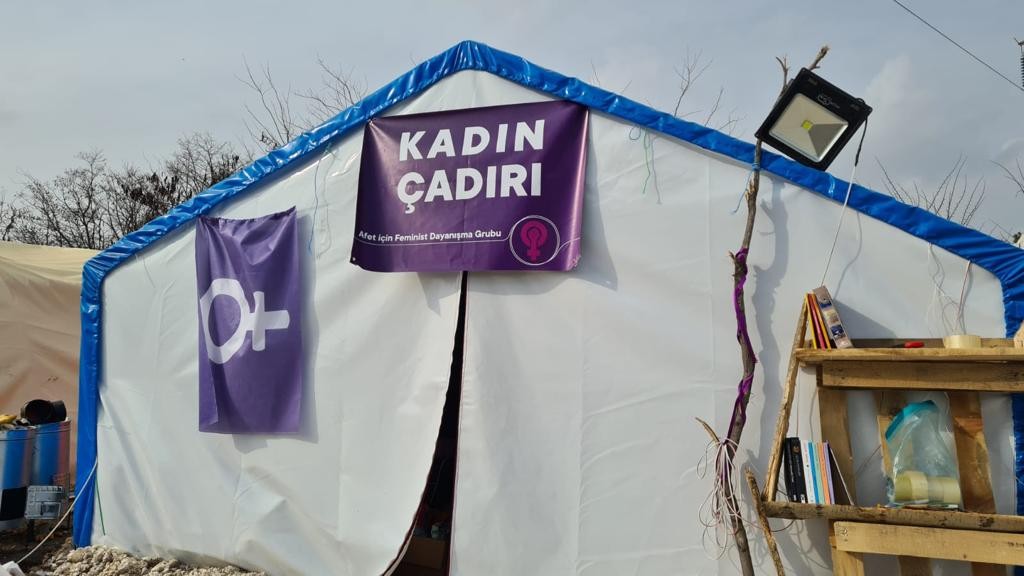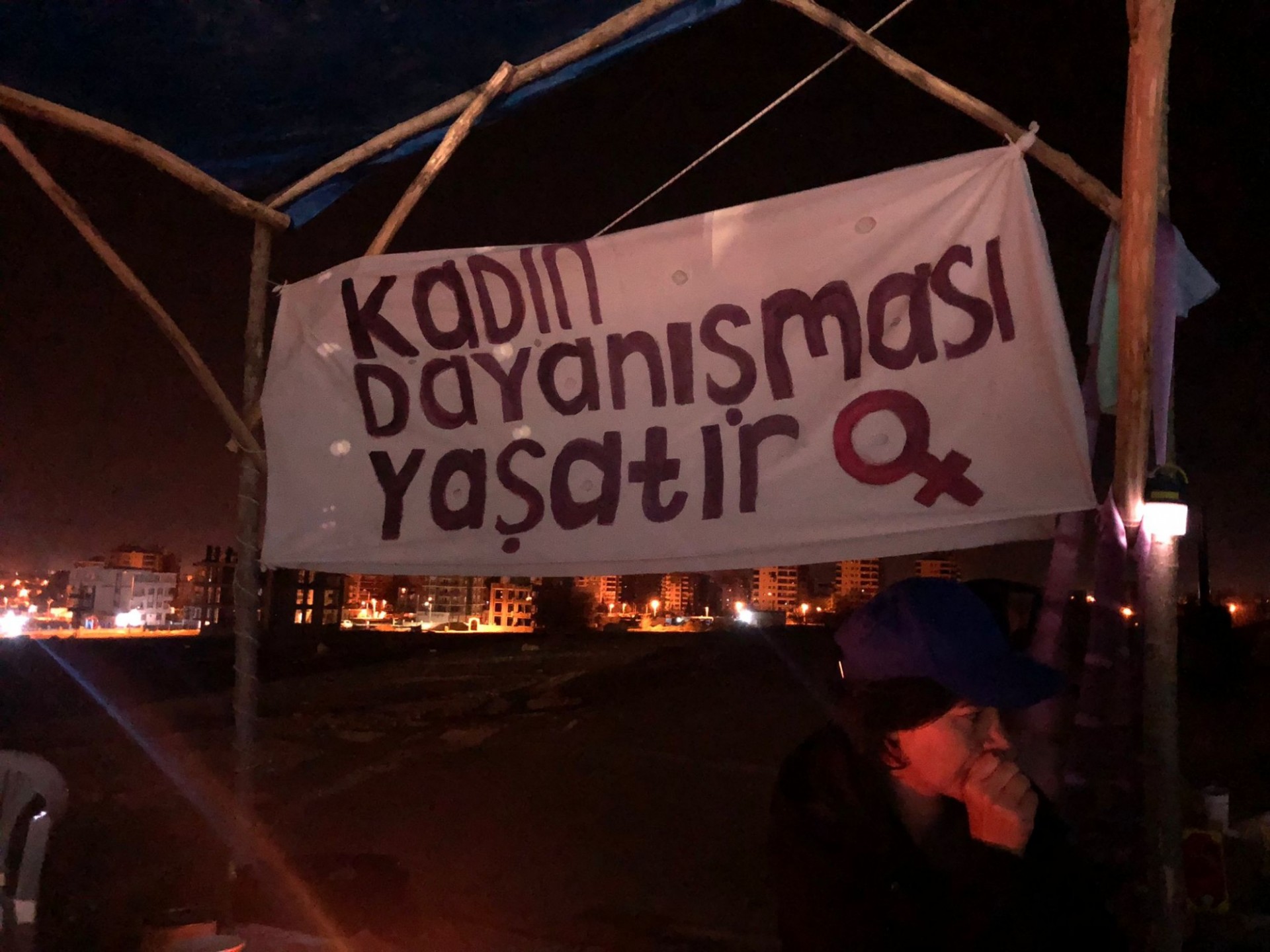Rising from the Rubble Vol II: Combating Violence Against Women in the Earthquake Zone
Açelya Uçan from Mor Çatı Women's Shelter shared the challenges for women in the earthquake zone and their long-term support plans.

Read the first story in the series
On February 6, Turkey was struck by two devastating earthquakes that claimed tens of thousands of lives and left over two million people displaced. In the aftermath of this tragedy, civil society organizations, artists, volunteers and activists have played a critical role in the coordination of relief efforts and the mobilization of resources to support those affected.
Over the course of the webinar, the speakers shared their personal experiences. In this piece, Açelya Uçan, project coordinator of Mor Çatı Women's Shelter Foundation, explains the ongoing threat of violence against women at the disaster zone and the foundation's efforts to overcome obstacles hindering women's access to support.
Violence against women is a pervasive problem that affects societies worldwide. However, when a catastrophic event like an earthquake strikes, the situation can become even more dire for women. This is especially true in Turkey, where the earthquake zone has exacerbated the issue of violence against women. The Mor Çatı Women's Shelter Foundation is one organization working to address the unique challenges that women face in the aftermath of the disaster, providing crucial support and resources to those in need.
"Violence against women is still a reality that threatens women's lives, and Mor Çatı Women’s Shelter Foundation is monitoring obstacles that prevent women from seeking help and support," said Açelya Uçan, project coordinator of Mor Çatı Women's Shelter Foundation, during her talk at Columbia Global Centers | Istanbul's online event Rising from the Rubble: Stories of Hope and Resilience from Turkey's Earthquake Zone.
For Mor Çatı's Reports
Uçan discussed the challenges they faced during the disaster, the ways to follow the needs of women who exposed male violence, and their long-term support plans for the region. As a feminist woman who volunteered for Mor Çatı, Uçan acted in solidarity with women and children within the earthquake region. Despite the challenges, the foundation saw that in the context of combating male violence, one of the most important problems is that the mechanism of combating violence against women is still not working properly.
To understand the needs of women and children who were directly and indirectly impacted by the earthquake, Mor Çatı established a solidarity movement with women's organizations in the earthquake region. They wanted to share their experiences with volunteers who were thinking of going to the earthquake zone, and they saw significant problems that required attention. They began to say their word regarding the probable risks and preventive activities in the humanitarian relief activities and rights-based activities in the face of such disasters.

During the disaster, the foundation saw an increase in different forms of male violence, such as sexual violence, and recognized the need to conduct long-term support plans for the region.
"Especially during earthquakes, where people lose their home,” Uçan said, “not only domestic violence but also different forms of male violence can emerge, such as sexual violence.”
As Mor Çatı, they identified the needs of women and children and initially had to collect findings about their situation. For example, they found that women who had experienced male violence before the earthquake were not able to receive any support, and they saw a lack of coordination.
For Mor Çatı's Reports
The foundation faced challenges with the situation of lost and unaccompanied children, and they identified rumours about human trafficking. Due to the lack of coordination between the Ministry of Health and the Ministry of Family and Social Services, they did not know the whereabouts of these children. They are paying attention to the plight of single women who are struggling with poverty and find it challenging to receive support, and they aim to address the issue of human trafficking that some of these children face.
“Women are hesitant to talk about sexual health problems, making it difficult to find healthcare in Turkey,” said Uçan. “These existing problems are exacerbated by discrimination, putting both women and LGBTI+ individuals at significant risk,” she added.
In conclusion, Mor Çatı Women's Shelter Foundation has been working hard to combat violence against women in the earthquake region. They have faced challenges during the disaster, but they have been able to monitor obstacles and support for women and children. They recognize the need for long-term support plans, effective functioning of the institutions for combatting male violence immediately and the importance of addressing different forms of male violence, such as sexual violence, that can emerge during such disasters. Their work is essential for providing hope and resilience to those affected by the earthquake.